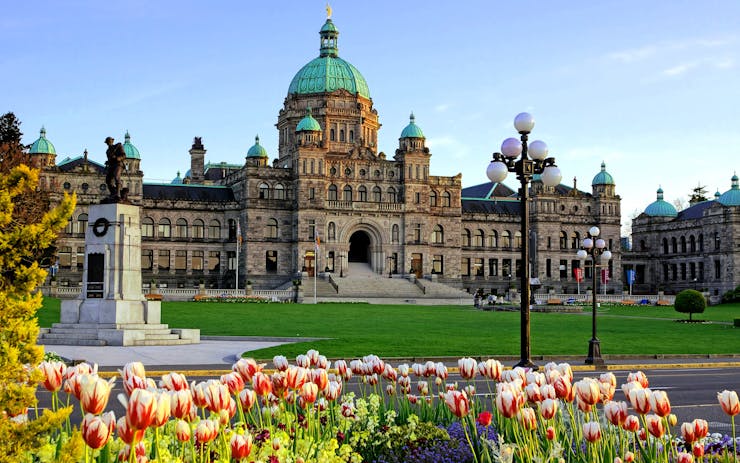The BC government today introduced new legislation related to the pending legalization of recreational cannabis, which is expected this year.
The legislation includes two new acts that govern the sale and use of recreational cannabis —the Cannabis Control and Licensing Act and the Cannabis Distribution Act.
At a news conference in Victoria, BC Minister of Public Safety and Solicitor General Mike Farnworth said the legislation “provides a sound foundation for the regulation and safe implementation of legalized cannabis” in the province.
“This marks a major milestone, and puts our province in position to not only be ready for federal cannabis legalization in late summer, but does so in a way that reflects the province’s goals for legalized cannabis that prioritize public health and safety, particularly for our children and youth,” said Farnworth.
The legislation, which formalizes retail rules put forward two months ago, includes two new acts that govern the sale and use of recreational cannabis —the Cannabis Control and Licensing Act and the Cannabis Distribution Act.
The government also introduced changes to the Motor Vehicle Act, aimed at cracking down on driving while under the influence of cannabis.
According to the terms of the new legislation:
- 19 will be the minimum age to purchase, sell or consume cannabis.
- The province will have exclusive rights over wholesale distribution of cannabis, through the Liquor Distribution Branch, and will provide the authority for public retail sales.
- The province will establish online sales and government-run retail stores under the name B.C. Cannabis Stores.
- Cannabis will be sold in government-run and privately owned stores.
- Stores will not be allowed to sell more than 30 grams of dried cannabis or its equivalent in oil to an individual at one time.
- Cannabis will not be sold in stores alongside liquor or tobacco.
- Adults will be allowed to possess as many as 30 grams of cannabis in public.
- Adults will be able to grow as many as four cannabis plants per household except those used as daycares. The plants must not be visible from public spaces.
- Cannabis use will be prohibited in every place where tobacco smoking is prohibited as well as in playgrounds, sports fields, parks and other places where children gather.
- Cannabis use will be prohibited in vehicles.
The government also introduced changes to the Motor Vehicle Act, aimed at cracking down on driving while under the influence of cannabis.
According to the Motor Vehicle Act amendments:
- There will be a 90-day driving prohibition for any driver who police believe operated a motor vehicle while affected by a drug or by a combination of a drug and alcohol. Detection will based on analysis of a bodily substance or an evaluation by a police officer that is specially trained in cannabis detection.
- There will be a zero-tolerance restriction for the presence of THC in new drivers in the Graduated Licensing Program.
A number of provincial cannabis offences could result in fines ranging from $2,000 to $100,000, imprisonment of three to 12 months, or both.
The government will provide exemptions to individuals who are federally authorized to purchase, possess and consume medical cannabis — but only when necessary to comply with charter rights and human rights law.
Farnsworth said pricing has not yet been determined and added that the province is “mindful the price needs to reflect the fact that one of the key elements of legalization is to reduce the influence of organized crime.” If the tax rate is too high, he said, you drive people to the black market.
Farnsworth also said the new acts will be amended as necessary to comply with federal law. He noted that cannabis edibles are expected to be legalized 12 months after flower and oil.
Assuming the federal government legalizes recreational cannabis this summer, as planned, the BC government will open its first retail store by late summer and offer online sales soon after.
The BC legislature will now debate and review the proposed legislation before it is finalized and passed into law.





